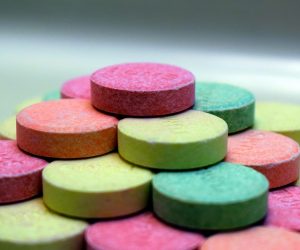
Study Finds Trend Toward Benefit in Using Blood-Clotting Agent for Bleeding Stroke
American Stroke Association via EurekAlert – American Stroke Association International Stroke Conference – Late breaking science news release.
LOS ANGELES, Feb. 21, 2020 — A common medication that reduces bleeding could be a treatment for bleeding stroke, particularly if administered quickly, according to late breaking science presented at the American Stroke Association’s International Stroke Conference 2020. The conference, [which was] Feb. 19-21 in Los Angeles, [is] a world premier meeting for researchers and clinicians dedicated to the science of stroke and brain health.
The Spot Sign and Tranexamic Acid on Preventing ICH Growth – Australasia Trial (STOP-AUST) was a multicenter, prospective, randomized, double-blind, placebo-controlled, phase 2 clinical trial using the antifibrinolytic agent tranexamic acid in people with intracerebral hemorrhage (ICH). ICH is a severe form of acute stroke with few treatment options.
Tranexamic acid is currently used to treat or prevent excessive blood loss from trauma, surgery, tooth removal, nosebleeds and heavy menstruation. For this study, one hundred patients with active brain bleeding were given either intravenous tranexamic acid or placebo within 4.5 hours of symptom onset. Researchers analyzed brain CT scans taken during the 24-hour period after treatment with tranexamic acid or placebo.
Researchers found a trend towards reduced hemorrhage expansion in the group treated with tranexamic acid, especially in those treated within 3 hours of the brain bleed. However, this trend was not statistically significant. The finding was consistent with previous research using the medication.
“Further trials using tranexamic acid are ongoing and focusing on ultra-early treatment – within 2 hours. This is where the greatest opportunity for intervention appears to be,” said Nawaf Yassi, M.B.B.S., B.Sc., Ph.D., trial investigator and consultant neurologist at the Royal Melbourne Hospital.
“Tranexamic acid is inexpensive, safe and widely available,” said Yassi. “Our results and others provide great impetus for further, focused research using this treatment.”
Larger trials focused on patient outcomes are required for this therapy to enter routine clinical practice.
To read the original article click here.






